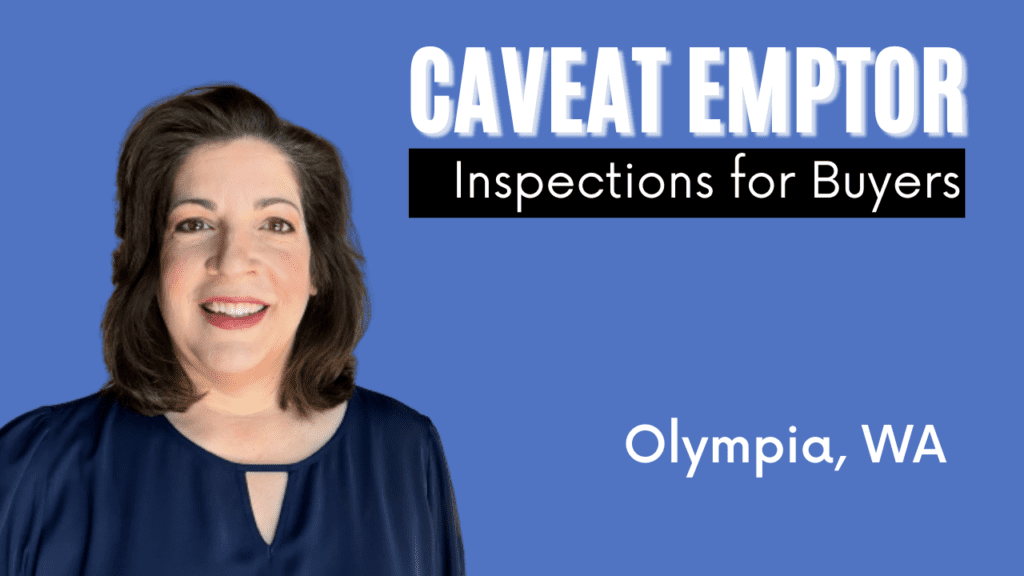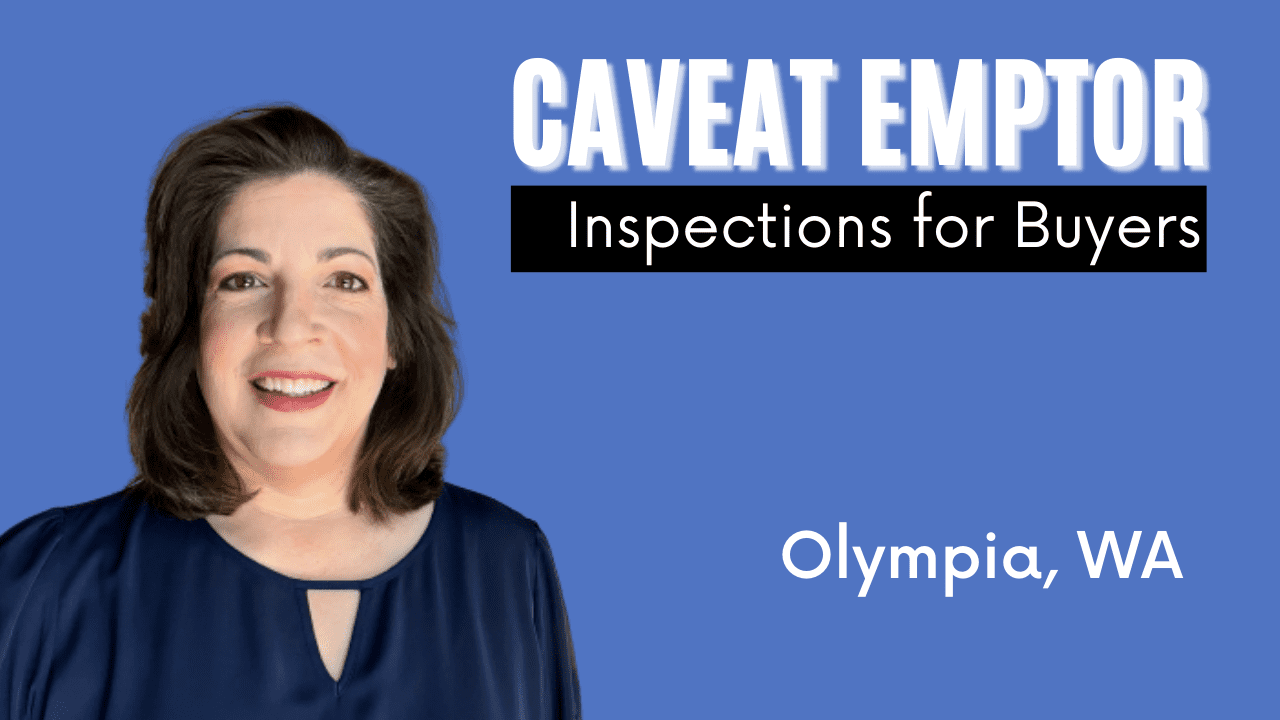
I work with buyers moving here from all over the country and real estate practices vary from area to area. Many of my out-of-state buyers ask what inspections sellers do for buyers and the list is extremely short. The one inspection sellers do for buyers is if the property has a septic system, it’s the seller who will pump and inspect the septic system but otherwise, all other inspections and investigations are done by the buyer.
By the way, if you want to see what happens at a septic pumping, check out this video I did last spring.
The reason why it’s up to the buyer to inspect is that Washington State is a caveat emptor state, which translates to buyer beware. This means that buyers have the responsibility to hire inspectors, pay for inspections and investigate the property to their subjective satisfaction. Although the seller has an obligation to disclose known material defects, it is not the seller’s responsibility to do home inspections for the buyer.
This is shocking news, especially to my buyers from California, who have told me that in California, sellers do the home inspection and provide that report to buyers. I’ve asked several California brokers this question and they confirm that California is also a buyer-beware state but it is their local practice for sellers to do home inspections. Here in Olympia, most sellers do not do home inspections for buyers.
What should a buyer inspect?
There is a very long list of possible inspections a buyer can do and it depends upon the property. The purchase and sale agreement lists potential things buyers should look into and here’s the shortlist:
- Well pump inspection
- Well water testing
- Scope the sewer line
- Soil test for contaminates
Call specialists to inspect:
- roof
- crawlspace
- foundation
- electrical system
- HVAC
- trees on the property
- pests
- slopes and erosion
Test for lead-based paint, mold, asbestos, and other environmental hazards.
Visit the city or county planner for questions on zoning, building requirements, and permits.
Honestly, this list is not exhaustive. There is so much more you could investigate but these are the more common inspections depending on the property.
Where do you start?
As you and I tour homes, I will point out things that I see. After attending many home inspections and asking questions, I have learned a lot and have learned what inspectors look for but the general home inspection is where to start. The home inspectors I have on my list have extensive knowledge and most have a building background. They can advise you on additional inspections or what else you should be investigating.
This is a great start to learning more about the home you are purchasing. The good news is our home inspection contingency is very buyer friendly. The contingency gives you additional time for additional inspections if something comes up during the general inspection.
An example might be the home inspector discovered water in the crawl space or maybe when inspecting the electrical panel, there was some questionable wiring. These are things that you may want to have a specialist come in to investigate further and if so, the boilerplate language states buyers have an additional five business days to conduct additional inspections if recommended by the home inspector.
Can buyers go overboard and over-inspect?
The technical answer is no because buyers are told to inspect to their subjective satisfaction. Everyone is going to have a different subjective level.
I always aim for a balanced approach because there is no such thing as a perfect home. All homes will have some defects so don’t let that discourage you.
The purpose of inspecting a home is to identify major problems that maybe weren’t obvious at first glance. The inspector can assess the overall condition of the home and identify current or future repairs needed. This is all good information for you so you make the best decision.
In conclusion
Don’t let our buyer-beware state scare you away from buying a home. There are protections built in place for buyers such as a very generous home inspection contingency that gives you time to inspect the property so you can make a well-informed choice. And you are not going along this journey alone-rely on your team of experts to help and guide you.
If you’d like to see what the common building standards are here in Olympia and what common inspection issues come up, you may want to check out this post.
If you are looking to buy or sell a home in the Olympia area, contact me today. I’d love to hear from you.

